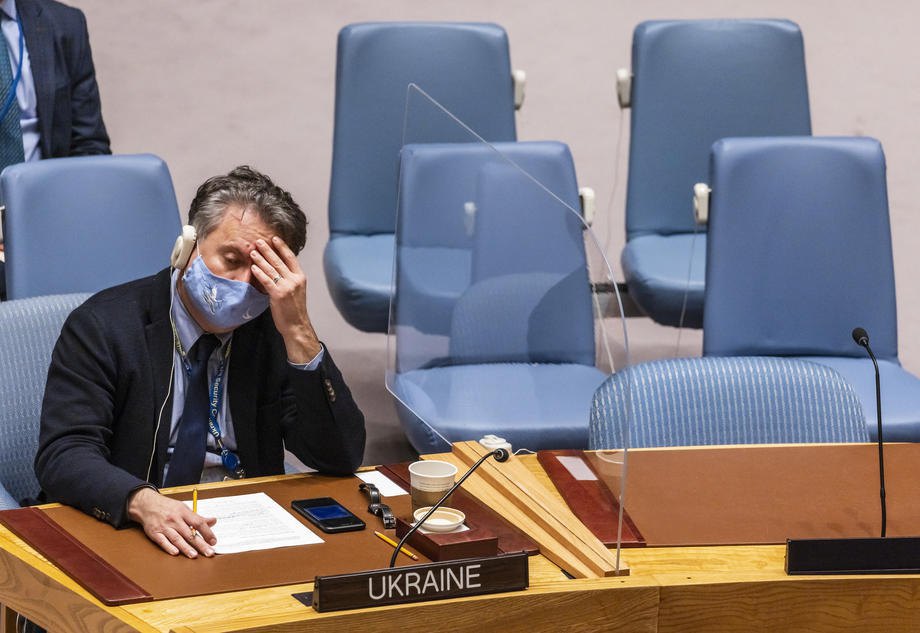
Moscow stopped talking with Secretary-General Guterres after February 24.
Don’t you think that the world is heading towards a new system and that it’s time to wrap the UN up and reformat it, like it once happened to the League of Nations?
The United Nations is certainly in need of significant reform. And it is not the first month that Ukraine has been talking about the need for a radical, unbiased, and sincere review of the global security efficiency. As the war has shown, the global system devised by Roosevelt, Churchill and Stalin does not work in the 21st century, especially when the interests of a country that pretends to be a permanent member to the Security Council, Russia, are affected.
In his September address to the UN General Assembly and in a recent address to the Security Council, President Zelensky said that if the Organization could not reform itself, then it should consider self-dissolution. It is a shame, by the way, that some observers snatch only the words of self-dissolution out of this address and omit the point about reform efforts that must be made first.
I believe, and I am constantly talking about this with the conscious, responsible ambassadors at the UN headquarters in New York, that holding a discussion on this issue is inevitable. It would be extremely irresponsible on the part of the countries if, after Ukraine wins a military victory in its territory, they return to the usual format of UN operation and cooperation with Russia on a ‘business as usual’ basis instead of reviewing the entire security architecture.

Will UN bureaucrats, who have long been sitting pretty on the money of Russia and China, want to go the way of self-dissolution?
Let us not exaggerate the role of the UN Secretariat: it is very important, but not decisive. The Secretariat may afford as much as the permanent members of the Security Council as well as some key sponsoring States will allow. Therefore, let us not vilify the UN Secretariat or surround it with the halo of omnipotence. It is hired to implement the decisions taken by the member states of the Security Council.
How did the UN react to such a statement by the President, and does the Organization itself say that it has long ceased to be effective?
The president’s statement was well received, as the reform intent has long been talked about at the UN. Volodymyr Zelensky’s address had a positive effect, as we already see how 40 countries have united and submitted a joint resolution (initiated by Liechtenstein), which aims to give new rights to the General Assembly so that it can act adequately if a member of the Security Council abuses its veto power.
Will this initiative create any specific mechanisms that will limit, at least in part, Russia’s use of the veto?
I’m sure it will. As a matter of fact, a response mechanism is being introduced, where the General Assembly must receive a report from the Security Council on the reasons for the veto. If there is an abuse, the UN General Assembly should consider the issue as soon as possible. To date, the Security Council has not been accountable to the General Assembly.
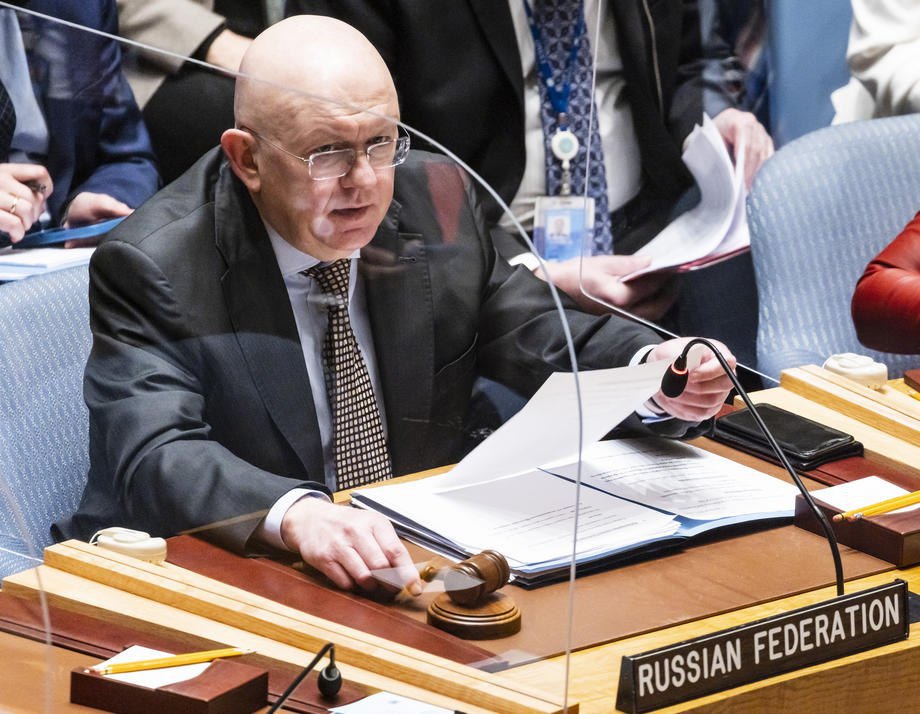
Probably one of the clearest examples of the UN crisis is the latest statement by WHO Director-General Tedros Ghebreyesus, who called racism the fact that the world is looking more closely at the crisis in Ukraine than at what is happening in Africa. We have already discussed with you that the WHO, under the leadership of this man, was permeated with money from Russia and China. What can be done to stop him from making such statements disgracing the WHO and its parent body – the UN?
I believe that the WHO badly needs to be reformed. This structure being one of the most subsidized, receiving huge contributions, in my opinion, should undergo a financial and political audit. At the same time, Ghebreyesus’ statement should be analyzed very carefully, because it still concerns, to a greater extent, the unequal distribution of resources in the world.
However, it is true that the world pays more attention to Russia’s war against Ukraine than to other conflicts, and there are clear explanations for this: because the consequences of the war have a more global dimension than the consequences of the military conflict in Syria, Yemen or Sudan. These confrontations are still regional, and the war in Ukraine may escalate into an all-out war. In addition, it is a war that can create global food, energy, migration, and other crises. I am a part-time ambassador to Trinidad and Tobago, and even there, in the Caribbean, they say that the war waged by Russia is affecting their security and economy.
At the same time, we need to really address Syria, where almost 600,000 people have died, and Yemen, where more than 20,000 children have been killed during the war and were forced to take up arms, and other important challenges.
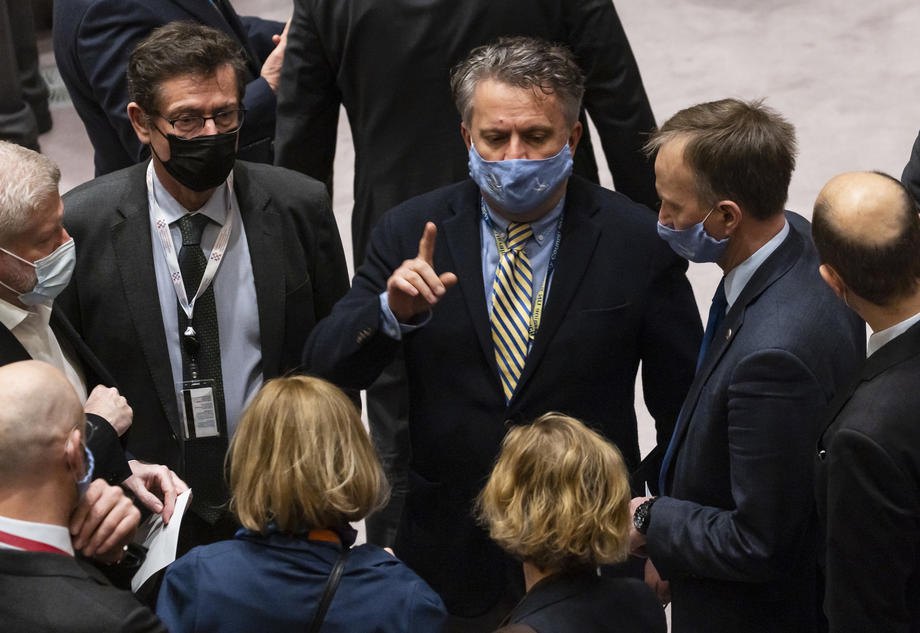
Volodymyr Zelensky wants to create a strong system of security guarantees for Ukraine. Should these guarantees be approved by the UN and under what procedure?
The UN can play the simplest role – as the depositary, the custodian of the document, which can be registered with the UN Secretariat. The next option is for Ukraine to sign a multilateral security agreement, which is then submitted in the form of a resolution to the Security Council. The latter must declare its support confirming thereby its legitimacy. However, this does not make such an agreement mandatory, as this action does not fall under Article 7 of the UN Charter.
And in general, how would you assess the position of the Secretary General, the leadership of the Organization, during the war waged by Russia against Ukraine?
Up to the attack on Ukraine, until February 24, the position of the Secretary-General was rather sluggish. He did not see peacekeeping or any other role for himself, not only in the Russian-Ukrainian war, but in other international military conflicts.
Guterres did not want to interfere in a situation where the interests of the permanent members of the Security Council are involved. In addition, I can say this with all responsibility, he sincerely did not believe that the Russian Federation would carry out such a massive attack on Ukraine. It was a shock to him.
The drama of the situation is that Russia committed an attack right after the General Assembly (February 23), which addressed the issue of occupied territories of Ukraine, and during the Security Council meeting itself, the Russian president’s declaration of war was simultaneously broadcast. It was a turning point for the Secretary-General, who has since taken a principled stand and began to speak directly to Putin and literally shout, “Putin, stop the war!”
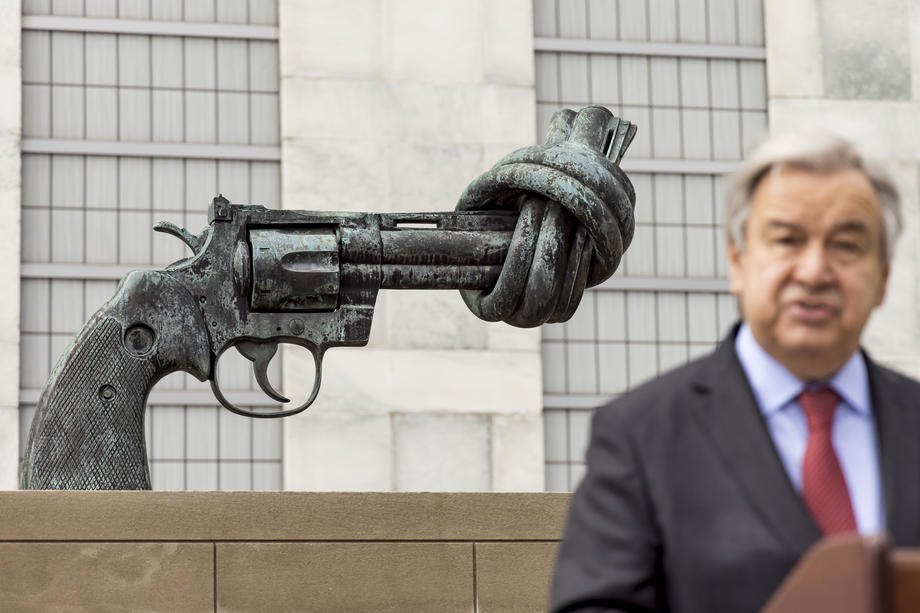
Is it true that the Russian leadership does not want to talk with Guterres?
Yes. At all stages, both before the war and now, the Russian Federation insists that there is no role for the UN in general and for the Secretary-General in particular in resolving the war in Ukraine. Once the Secretary-General took a very principled and public position on the morning of February 24, the Kremlin stopped communicating with him at all – no one in Moscow wants to talk to him. When he needed to talk to Lavrov in March, he could only reach Shoigu by phone.
"I have been commissioned to get Russia to be removed from the U.N. Security Council"
You have repeatedly stated that Russia is illegally holding the position of a permanent member of the U.N. Security Council, that it is the only country in the world that has appointed itself to that position without going through the appropriate procedure. You have recently said that it should be excluded. What should be the procedure for this and is it the right time?
The permanent members of the Security Council have not yet reached the level of readiness to talk about the exclusion of Russia as a permanent member. You can see that it took 43 days from the beginning of the war in Ukraine for the European countries and countries of North America to suspend Russia from the UN Human Rights Council (HRC), let alone the UN Security Council. And this despite the fact that the General Assembly recognized Russia as an aggressor state.
You said earlier that the Ukrainian leadership did not commission you to do everything possible to remove Russia from the Security Council. And now, during the war, the respective instructions have appeared, is it necessary to start the appropriate procedure?
To start with, it’s the right time for this procedure. Secondly, the Ukrainian leadership has instructed me to achieve the removal of Russia from the UN Security Council. Third, other diplomats also received an instruction to reduce Russia’s presence in any international organization.
Last week, we managed to get Russia to fail in all possible elections at the UN, where it ran. During the voting at the meeting of the Economic and Social Council (ECOSOC), the Russian Federation lost its membership in the Permanent Forum on Indigenous Issues (it was the member since its inception – 22 years), Ukraine was elected instead; Russia has not been elected to the Committee on Non-Governmental Organizations, with the UNICEF Executive Office, and the UN Executive Office - Women it is the same story.

And let the names of these bodies not be as eloquent as the Security Council, but it is a disaster for a permanent member to fail any election. Many countries that are dependent on Russia’s decisions in the Security Council have voted against it, realizing that Moscow will take revenge on them.
Former Bush spokesman Mark Thyssen said the UN must now take away Russia's permanent Security Council seat and hand it over to Ukraine, as it once expelled Taiwan by handing over power to China. How do you evaluate such a proposal and is it possible to make a decision?
First, this procedure is on time. Secondly, I received such an instruction from the leadership - to achieve the removal of Russia from the UN Security Council. Third, other diplomats also received an order to reduce Russia's presence in any international organization.
Already last week, we managed to get Russia to run in all possible elections at the UN, where it ran. During the voting on the basis of the meeting of the Economic and Social Council (ECOSOC), the Russian Federation lost its membership in the Permanent Forum of Indigenous Peoples (it has held its place since its inception - 22 years), Ukraine was elected instead; Russia has not been elected to the Committee on Non-Governmental Organizations, the UNICEF Executive Office and the UN Executive Office - Women - the same story.
And let the names of these bodies not be as eloquent as the Security Council, but for a permanent member to fly in the election is a disaster. Many countries that are dependent on Russia's decisions in the Security Council have voted against it, realizing that Moscow will take revenge on them.

Former speechwriter for United States President George W. Bush, Marc Thiessen, said the UN must now take away Russia’s permanent Security Council seat and hand it over to Ukraine, as it once expelled Taiwan by handing over authorities to China. What is your opinion on this proposal and is it possible to get the appropriate message over?
Let’s put it this way: nothing is impossible in the world. I think that a more realistic scenario is to consider removing Russia from the Security Council, which will be directly related to the international recognition of Russia’s responsibility for its war crimes.
As I have already said, if anyone thinks that Russia’s military defeat in Ukraine means the end and the final victory, they are mistaken. This is the worst-case scenario that could happen: when Ukraine wins the war, and then we have another Nebenzya in the Security Council making some statements as if nothing had happened.
While considering Russia’s responsibility, the world must answer the question: is it ready to sit at the same table with the new Lavrov and Nebenzya, or should Russia’s influence on the Security Council and the UN as a whole be limited? This is the only scenario with good prospects. The truth is that if the Russian Federation were not a nuclear state, it would have been tossed on the garbage heap of UN history just like that. The only thing that refrains other permanent members of the Security Council from taking decisive action is Russia’s nuclear arsenal.
If we take the current members of the Security Council, permanent and non-permanent, who support and play into the hands of Russia there, who should Ukraine take there as an adversary?
I do not think that there are any unfriendly states in the Security Council. There is China, a permanent member, which, unfortunately, does not vote the way we would like. But it would be wrong to state that it votes in pro-Russian mode. China votes as it is necessary and favourable to it.
There have always been several groups that have tried to expand the Security Council to include Germany, Brazil, India, Japan, and other states as permanent members. Could you please tell me, does this make sense today?
To date, there is no prospect for the decision to expand the Security Council. These discussions continue every year, but usually end with nothing: a significant part of the General Assembly countries does not support this decision. However, Japan, Germany, Brazil, and India will continue to insist that their long-held desire to become permanent members of the Security Council must be fulfilled.
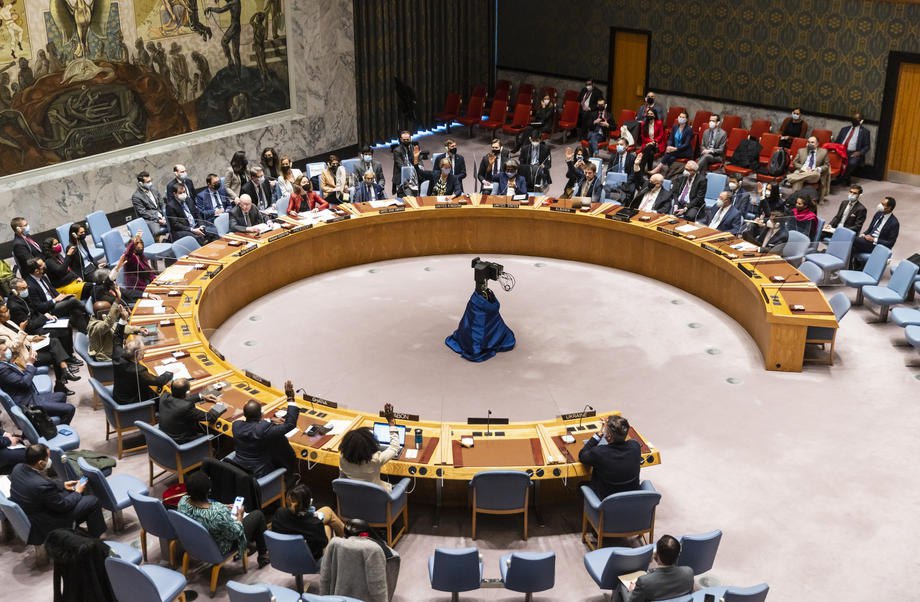
“Russia’s expulsion from the Human Rights Council is a disaster for it, a complete fiasco”
Russia has committed many war crimes in Ukraine. Which one was the point of no return for the Security Council?
For the Security Council and the Secretary General, it was February 24, the day of the attack, when Russia struck the first blows at Kyiv. After the assaults Russian troops committed in Bucha, the General Assembly and most UN countries could not remain silent and turn a blind eye to these crimes.
“Russia is committing deliberate genocide against Ukrainians,” you said at a UN Security Council meeting. As an international lawyer, do you think it is possible to bring Russia to justice for the crime of genocide?
It will take a lot of work to bring the trial to a successful termination and get a court judgement that it was an act of genocide. Giving political assessments is one thing and proper evidence gathering for an international tribunal is another.
In the context of the crime of genocide, the main thing is to prove the intention of the top leadership of the Russian Federation under the relevant Convention of 1948. This, I think, will require the testimony of President Putin’s inner circle – those who made the decision with him: Defense Minister Shoigu, Chief of General Staff Gerasimov, and Secretary of the Security Council Patrushev. We do not know what will happen to these people, whether they will be ready to testify and whether there will be enough evidence in court without conducting such interrogations. But the scale and audacity of the actions, I believe, give grounds for sentencing that it was genocide.
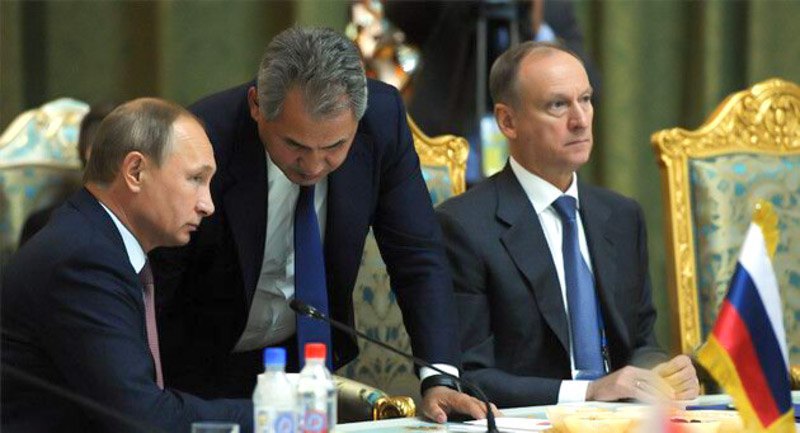
You stated that Russia forcibly deported up to half a million people from Ukraine, including 121,000 children. Do I remember correctly that forced displacement of children to another national group is covered by the Convention on the Prevention and Punishment of the Crime of Genocide?
We have a resolution of the Verkhovna Rada, which qualifies specifically these actions as genocide. But again, in full support of this decision, evidence must be gathered that would allow the international court to recognize the displacement as falling under the Convention on the Prevention and Punishment of the Crime of Genocide.
I have recently been surprised by the fact that the Office of the United Nations High Commissioner for Human Rights gives some understated figures on the number of civilians killed in Ukraine. How can one explain this?
This is not surprising for me, because in the end they will give the right figure. The fact that they present other data that differ from those provided by Ukraine or foreign media does not mean that they deny them. This only means that they have not yet confirmed at the bureaucratic level the number of victims we have already verified. The Office itself says that the data may still differ from the real state of affairs. This process will continue unabated for months, if not years.
The General Assembly adopted several resolutions last month, including the Aggression against Ukraine resolution. However, we cannot sue Russia in the International Criminal Court (ICC) for the crime of aggression, condemning its top leadership, in part because it must be approved by the UN Security Council before a trial can begin. What is to be done in this situation?
As the first step, before blaming a third party, Ukraine must not fall behind but ratify the Rome Statute and all the accompanying amendments thereto, so as not to have to worry about jurisdiction.
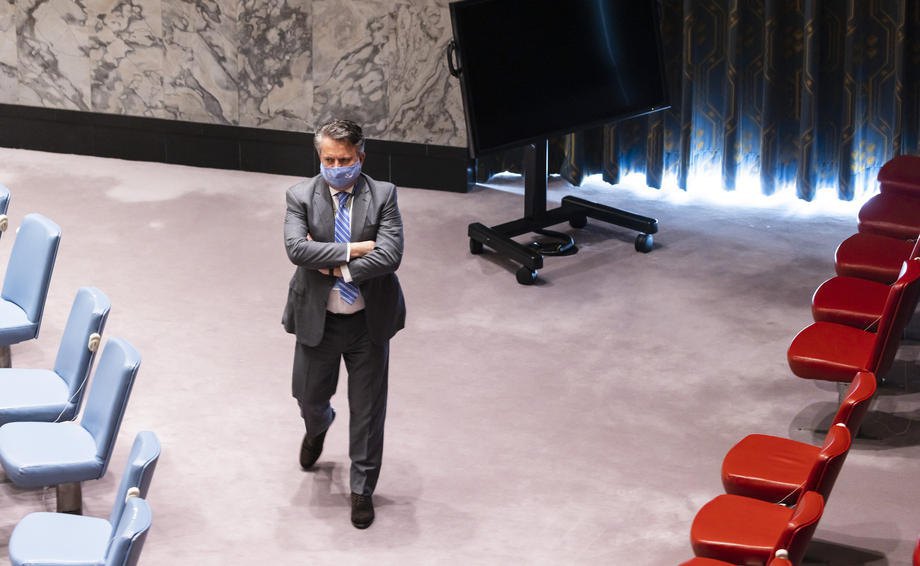
However, Russia has not ratified it either, so the ICC is still stuck in a dead end and cannot do anything without a decision of the Security Council, where Russia has a veto.
This confirms my words that the current system, designed by Roosevelt, Churchill, and Stalin, is not working and needs to be reformed. We will work on it – nothing is impossible.
What is the value of the work of ICC Prosecutor Karim Khan? His main purpose is to ensure accountability for crimes under the jurisdiction of the ICC, including genocide, crimes against humanity and war crimes. In the context of the crime of aggression, the evidence must be properly collected, preserved, and handed over to the venue that will be set up at the appropriate time, for example, by decision of the Security Council.
We cannot rule out a scenario that is unrealistic today: Putin disappears, Patrushev, Shoigu, Matvienko disappear, and a new regime emerges in Moscow, which will jump out of its pants to prove to the collective democratic world that they are eligible for cooperation and do not deserve being associated with the previous regime. What should they do for this? Be ready to cooperate in bringing to justice all those guilty, to convict them. The new representative of the Russian Federation in the Security Council, if this country is still there at that time, will not even have to vote against, he will simply be able to abstain – so a tribunal can be set up and legitimized, the guilty can be punished.
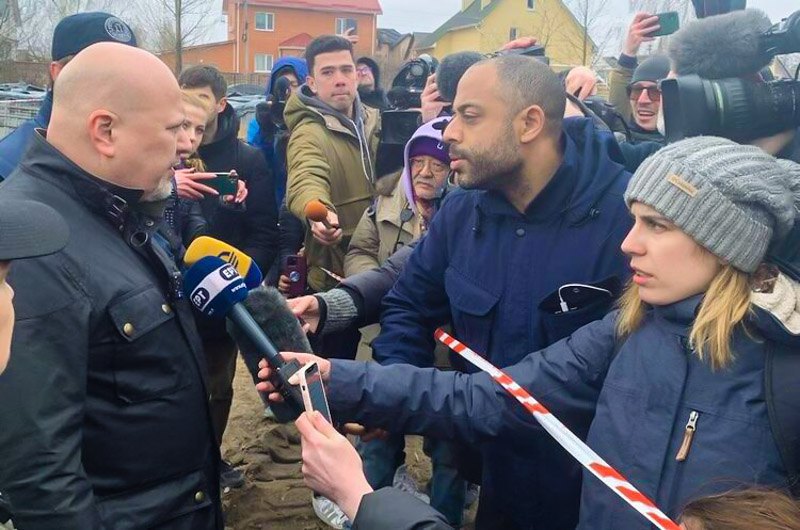
Meanwhile, Ukraine is now going to initiate the creation of a separate tribunal for Russian crimes. It needs to have the highest level of international recognition. Can we expect that if not the UN Security Council, then at least the General Assembly will legitimize this separate judicial body?
This is a very realistic scenario in the long run, because most of the member countries of the General Assembly already support us. However, this process will take more than a week – it all depends on what type of tribunal you need to create.
The trend here will be about the same as during the process of suspending Russia’s membership in the Human Rights Council (HRC). This will take a long time, as countries may agree that war crimes have been committed in Ukraine, but some will not be willing to vote for a tribunal because their leaders fear such trials will be launched against them.
Another point: the General Assembly is ready to vote in favor of the investigation, but the General Assembly will not pass a verdict as a judge or jury. It is not ready yet to vote on the classifying definition whether it was genocide, crimes against humanity or something else.
You have already mentioned HRC. The UN General Assembly recently has suspended Russia’s powers in the Human Rights Council. Let’s be specific: what does this give to Ukraine and in what way this decision would be harmful in real terms for Russia?
For a country that considers itself a permanent member of the Security Council, this is a complete disaster. This is a political and diplomatic fiasco. That is why they threw away the white flag, saying immediately after the vote that they intended to leave the Council themselves. Russia did not dare to be present at the level of ambassador at that infamous meeting. The ambassador simply did not come, so as not to be ashamed.
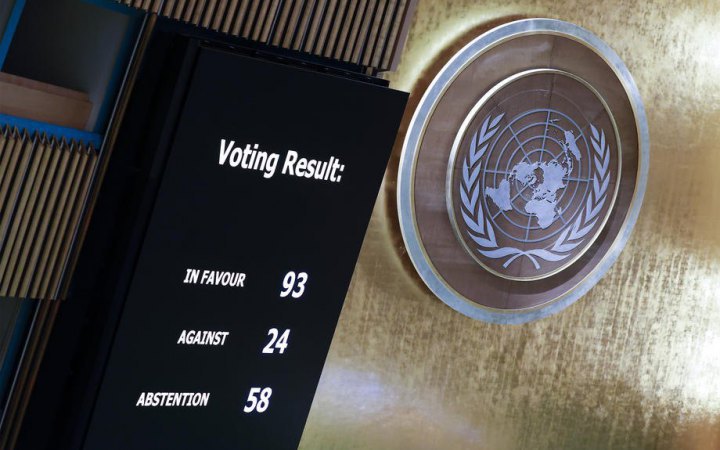
Another Russian war crime is the blockade of Ukrainian ports. The Executive Director of the UN World Food Program, David Beasley, has already said that if Russia does not stop the blockade, the world will face famine, a mass migration crisis and political instability. What the specific risks and for whom are meant and how can the UN counteract or help in this situation?
According to UN estimates, there are hundreds of millions of people in the world who suffer from food shortages, tens of millions who suffer from hunger and die from it. The situation was so difficult even before the coronavirus, which only made it worse, adding tens of millions of people around the world to this list. Then, before the war, the financial crisis began, there was terrible inflation in many countries around the world: food prices have soared drastically. The war in Ukraine, which provided food for many poor countries, made the situation catastrophic.
Take a country like Lebanon, which is de facto bankrupt and depends on the supply of Ukrainian grain by 60-70%. Lebanese cannot go to the free market and buy something; their economy is closed for this. Now imagine countries where people live on less than a dollar a day. Panic and uncertainty reign in the world today. The UN is trying to come up with a solution – to develop a resolution on food security, but so far this process is very slow.
Ukraine actually provided for the food needs for many, including poor countries. We have substantial stocks of grain, but we cannot export them because the Russian Federation is blocking our access to the sea. She is thus committing a crime against Ukraine and against the whole world.
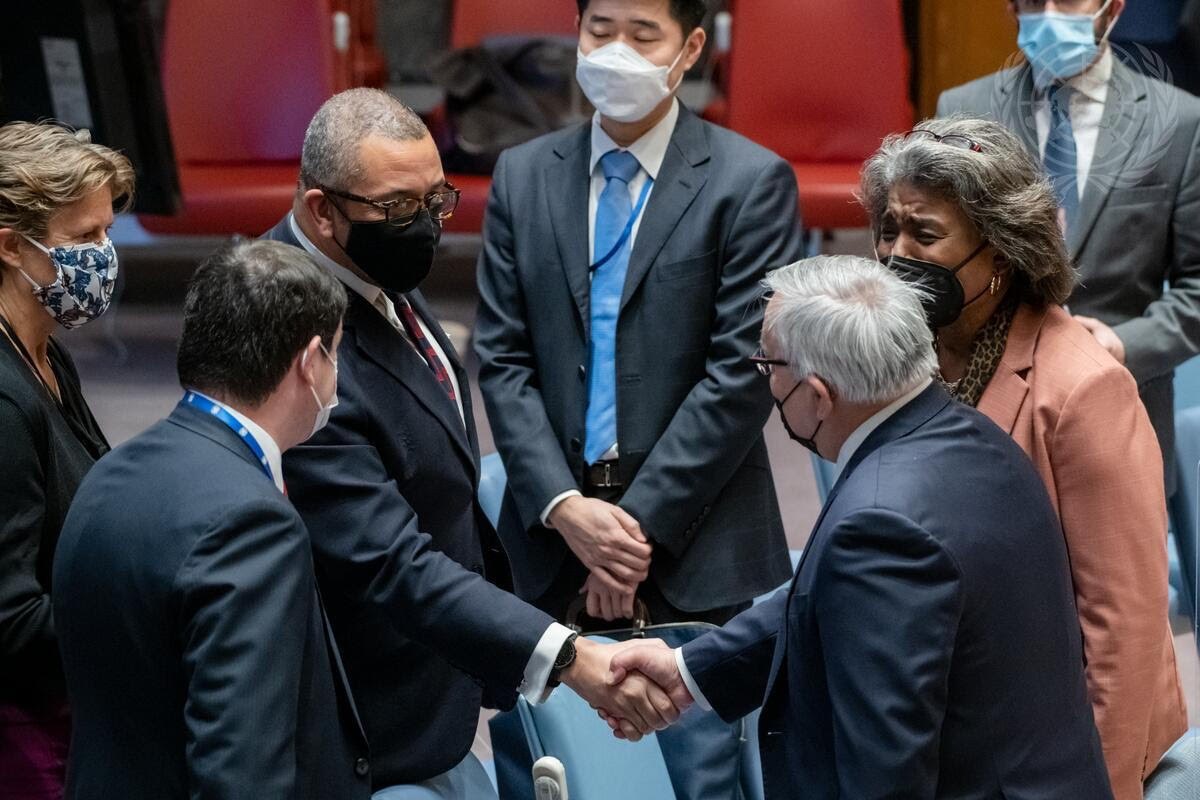
“Western ambassadors went to the residence of the Russian Federation to drink vodka, eat coulibiac, but after the attack on Ukraine, everyone held off the Russians."
During the war, you had many verbal clashes with the current Russian ambassador to the UN, Vasiliy Nebenzya. Could you please tell me, have you ever wanted to do anything to him during this time?
Why? This is not hygienic. I sincerely believe that Nebenzya will burn in hell. I don’t even have to lift my finger to get him there. He has already booked a room for himself with all his actions.
How does Nebenzia behave behind the scenes of meetings, off stage? Does he understand that he is an accomplice to crimes? Is he trying to whiten himself in front of his colleagues at the UN?
Let’s remember how Russia presided over the Security Council in February, when Lavrov’s deputy Vershinin arrived there. The ambassadors of the United States, China, France, and Great Britain approached him and Nebenzya, communicated kindly and shook hands. They even went to a Russian residence to drink vodka and eat coulibiac. After the attack on Ukraine, no one in the UN Security Council approaches the Russians on their own initiative and without real need.
There is not any wiggle room for Nebenzya. He has only two options left: either continue to serve the Fuehrer or become a renegade and receive protection in New York. He simply has no other options now. The historical record is peppered with examples of the Fuehrers’ fate in bunkers.
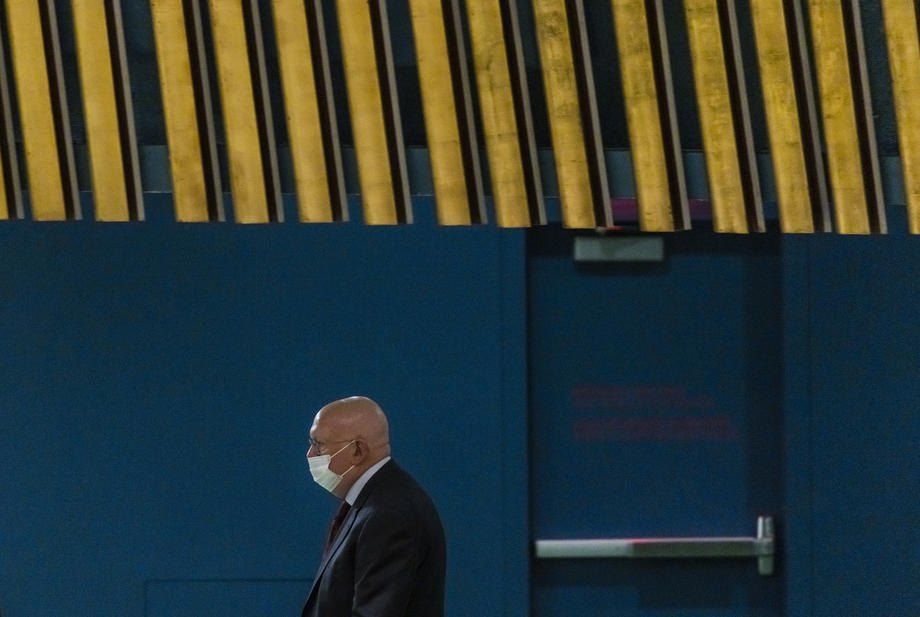
Recently, the former ambassador of Ukraine to the UN Volodymyr Yelchenko said that the UN Secretariat has a network of Russian agents. Here is the question to you: is it possible to clean the institution from the agents and is it realistic at all?
There are probably five spies from around the world in a square meter of the UN headquarters. It concerns both the Geneva headquarters, the Vienna headquarters, as well as the New York headquarters. This is a hive in which at least 60% of employees work for one or another world intelligence body, including according to the quota of one or another state. In addition to staff under quota, there are also useful idiots who ideologically help, in particular, Russian intelligence. It is obvious to everyone that there is a hotbed of Russian spies at the headquarters in New York. We all just pretend not to notice it.
‘Deagentization’ (elimination of intelligence agents – translator’s note) would be useful. It is a difficult question how to accomplish it. The matter is that even before the 2014 war, there were problems between Russia, Cuba, Syria, Iran, Korea on the one hand and the United States as a host country on the other. In fact, the United States is doing a lot to restrict the arrival of spies who pretend to be diplomats, officials – in particular, they do not give them visas or extend them.
Yelchenko also noted that about 300 Russians work in the UN Secretariat. This is a huge number. How many Ukrainians work there? Сan we insist on increasing the conditional quota for our state at the highest levels of the Organization?
It is not exactly true that there is an insufficient number of Ukrainians working in international organizations. There are many of them, including in the UN. If we take the UN and other international institutions, Ukraine is overrepresented, while Russia, on the contrary, is underrepresented. However, there is a big difference in approaches: we compete by quantity, and Russians compete by quality. The fact is that Ukrainians who do not want to go to the civil service and receive a low salary, apply everywhere, but to the lowest positions. While the Russians get the highest positions. In Geneva, for example, they received a quota for the Director-General of the United Nations Office at Geneva, the UN Under-Secretary-General for Counter-Terrorism, and there are many such positions.
There is another point: the Secretary-General, who is responsible for appointments to specific positions, does not appoint anyone to high positions if the permanent members of the Security Council object.

Maybe it's time to change the situation in our favor?
Maybe it is. We shall see.
I sometimes turn to our conversation of March 17, 2020, in my mind. Then you said in an interview that Ukraine continues to share premises with Russia within the UN, in particular the building on 67th Street in Manhattan, where Russia has a full-fledged mission, and Ukrainian diplomats simply do not enter it. Could you please tell me, isn't it time to bolster our efforts to alienate Russian property in favor of Ukraine?
I think the time has come. However, there is a problem now - lack of human and financial resources. This requires great lawyers who will have to be paid with millions of dollars. After all, even if the US government says that Russia and Putin are war criminals, it will not mean that a New York notary may accept the application for re-registration of the premises to Ukraine.
The building you are talking about is registered to three countries: Ukraine, Belarus, and the Russian Federation, but without apportion of participatory share of property. And there is a diplomatic and legislative conflict: on the one hand, a New York notary will confirm to us that Ukraine is a co-owner of this building, but no notary and no American executive service will invade foreign territory, which is real estate in terms of international law, and will not demand from the Russians that they give us our share.
In the same interview two years ago, you said: “My task is to prepare the UN for large-scale participation in the restoration of the Donbass.” And what is your task today, during and after the war?
The situation that is happening now only confirms that the task that Ukraine set for itself at the UN was the right one. The situation has changed, high officials from the UN have begun to travel to Ukraine, which means that proper planning of the activities of all UN structures will finally be carried out after the de-occupation of the temporarily occupied territory and the resumption of control over our entire territory of Ukraine. Although we will have to restore much more now. This is our common task with the UN. Only mine clearance could take ten years or more. During this time, I think the UN will play a leading role in Ukraine.
